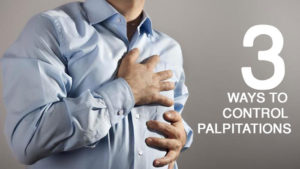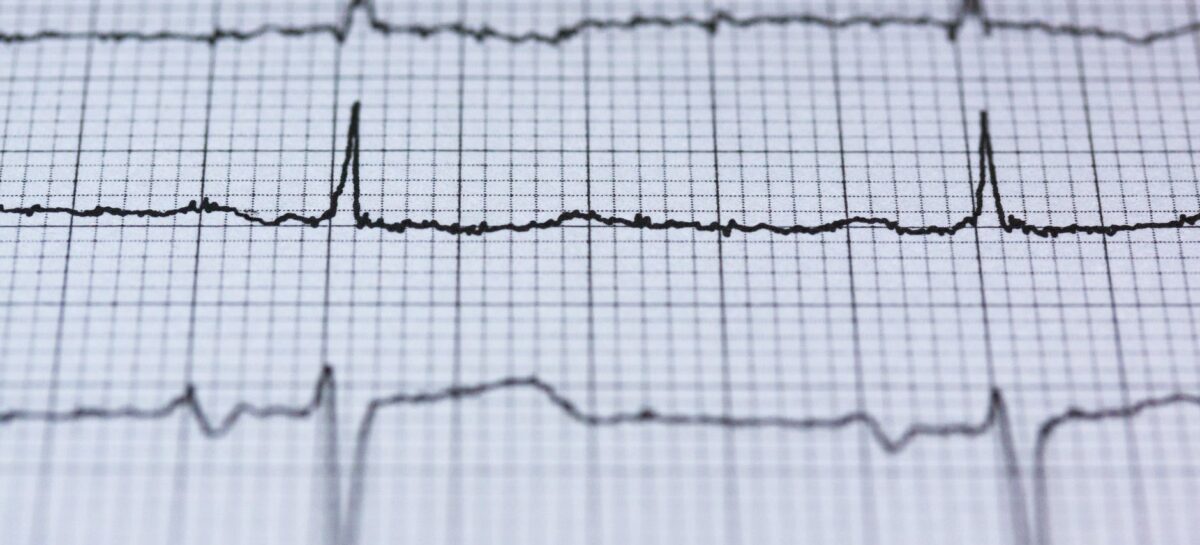Table of Content
Palpitations are a rapid, strong and irregular heartbeat due to some kind of illness or excess agitation or overexertion of the muscles. Palpitation is associated with anxiety and does not necessarily indicate any abnormality of the heart, but it can be a symptom arising from an irregular heartbeat. According to heart doctors, the anxiety might be caused due to excess consumption of caffeine or nicotine or alcohol. Sometimes palpitations could occur during pregnancy. Palpitation can be intermittent and of different intensity and duration, or continuous. Generally, palpitations are not serious or harmful and usually go away on their own.
What causes palpitations?
Palpitations are mainly associated with the following
• Coronary heart diseases, congestive heart failure, heart valve problems.
• Thyroid problems such as hyperthyroidism.
• Low blood pressure, fever.
• During pregnancy if the mother has anemia or hormonal changes.
Some people experience palpitations after eating heavy meals composed of a lot of carbohydrates, sugar, or fat. Heart specialists believe that monosodium Glutamate (MSG) present in certain foods can also trigger palpitations.
Wonder what happens to the heart during palpitations?
 During palpitation the upper chamber of the heart, the arteries contract prematurely. In order to compensate this, the arteries rest for a fraction of a second longer than usual and this is followed by the forceful contraction of the lower chambers of the heart (the ventricles).
During palpitation the upper chamber of the heart, the arteries contract prematurely. In order to compensate this, the arteries rest for a fraction of a second longer than usual and this is followed by the forceful contraction of the lower chambers of the heart (the ventricles).
Sometimes the lower chambers of the heart contract prematurely and if this keeps continuing for every beat then it leads to a condition called ventricular fibrillation. Ventricular fibrillation requires immediate medical attention because it is the most frequent cause of cardiac arrest.
Here are the symptoms associated with palpitations.
• The person might begin to feel slightly dizzy or light headed.
• The person could experience difficulty in breathing properly.
• Sometimes the person might faint and lose consciousness.
• Excessive sweating accompanied by pain and pressure in the chest can also be felt.
Medical treatment is required as soon as possible if the condition becomes serious.
How do you control palpitations?
In many cases, palpitations are harmless and go away on their own. Generally, if there are no underlying conditions like a heart disease then the following might prove very effective:
 • Keep your alcohol, nicotine and caffeine levels under control.
• Keep your alcohol, nicotine and caffeine levels under control.
• Stress and anxiety are a major cause so focus on doing more yoga and relaxing exercises. Take a peaceful walk on the beach and focus on keeping serene.
• If you have allergies that make you cough, avoid those substances at all cost.
These are very general methods to avoid palpitations, but for more specific conditions like anemia or heart disease, more focus should be given to eliminate the underlying disease.
Once your health issue has been identified and addressed, it’s vital to adhere to a healthy lifestyle to prevent heart palpitations and protect your vital heart health. For continuous care and guidance, visit Kauvery Hospital, conveniently located in Chennai, Hosur, Salem, Tirunelveli, and Trichy.
Frequently Asked Questions
1. What causes palpitations?
Palpitations can be caused by heart diseases, thyroid issues, low blood pressure, pregnancy, caffeine, nicotine, alcohol, or heavy meals.
2. Are palpitations dangerous?
Usually not, but persistent or severe palpitations need medical attention.
3. What happens to the heart during palpitations?
The heart’s chambers may contract prematurely, which can sometimes lead to ventricular fibrillation, a serious condition.
4. What are the symptoms of palpitations?
Symptoms include dizziness, light-headedness, difficulty breathing, fainting, sweating, and chest pain.
5. How can I control or prevent palpitations?
To control or prevent palpitations, manage your intake of alcohol, nicotine, and caffeine, reduce stress through relaxation exercises like yoga, and avoid allergens that trigger coughing. For specific conditions like anemia or heart disease, focus on treating the underlying issue.
Kauvery Hospital is globally known for its multidisciplinary services at all its Centers of Excellence, and for its comprehensive, Avant-Grade technology, especially in diagnostics and remedial care in heart diseases, transplantation, vascular and neurosciences medicine. Located in the heart of Trichy (Tennur, Royal Road and Alexandria Road (Cantonment), Chennai, Hosur, Salem, Tirunelveli and Bengaluru, the hospital also renders adult and pediatric trauma care.
Chennai – 044 4000 6000 • Trichy – Cantonment – 0431 4077777 • Trichy – Heartcity – 0431 4003500 • Trichy – Tennur – 0431 4022555 • Hosur – 04344 272727 • Salem – 0427 2677777 • Tirunelveli – 0462 4006000 • Bengaluru – 080 6801 6801



